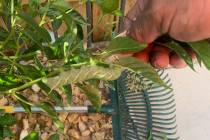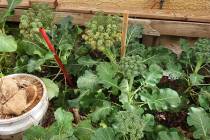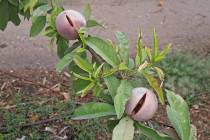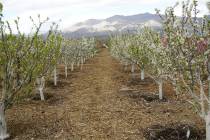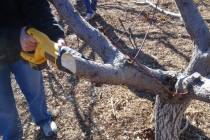Best gifts continue to give for many seasons
I love the way the seasons remind me of our planet's journey around the sun. As another winter solstice approaches, I find simple pleasure in noticing how the light reaches deeply into our home as the sun traverses its low, southerly arc each day. Another source of enjoyment this time of year comes in the form of giving to others.
Exchanging gifts is a holiday tradition that can have great meaning. As a sincere expression of appreciation or love, a well-considered gift can convey much and its impact can last a lifetime. On the other end of the scale, the "consumerization" of this beautiful tradition now often leads to mindless exchanges of cheaply made items that carry little or no meaning at all.
I think the human intent, interaction and emotional exchange is the most significant and enduring aspect of giving. A good gift lasts a long, long time while continuing to invoke that positive experience. It provides an ongoing connection to those we care about, no matter where they might be.
It seems to me that gifts of the heart, rather than gifts of the wallet, carry the most meaning over the long term. I've written in the past about my mother-in-law's beautiful, handmade blankets that have lasted decades and brought comfort to so many. Had she chose instead to give some electronic doo-dads-of-the-week, for example, they would have been long forgotten by now, relegated to the trash heap of modern consumerism. Instead, my wife and I still get to pull them from the closet every winter and experience the joy of cozy feet. I consider her marvelous creations among the greenest of gifts.
There is another way to give to others that is perhaps the greenest and most selfless of all. Taking quantitative action to reduce one's carbon footprint will provide lasting benefits to countless others, long into the future. You may never shake the hand of the young man whose life was made possible in part by your generosity. You may never hug the child born into a world with cleaner air and healthy oceans, but they will appreciate the gift none the less.
The holidays are meant to reflect our loving nature. We are supposed to care about life, but we are not acting like it. Based on the latest scientific evidence, we are perilously close to losing our only chance to avert runaway climate change. Why aren't we doing everything possible to change that?
There is not one among us who is unable to contribute to this gift of life to the future. From the food we eat, to the homes we occupy, to the way we get around, there are countless opportunities to give to those who need it most: our children and their children. They depend on us to make the right decisions now, to give the gift of life.
So here's an idea. How about if we simply give more of ourselves to those we love? Spend more time reading with the kids or in quality conversations with your spouse. Refrain from buying meaningless, short-term items and instead, buy a home energy audit, a caulking gun or some more insulation. Or put some dollars into a savings account so you can eventually become energy independent.
Planet Earth will continue its journey for billions of years to come. The arc of the sun will continue to shift through the seasons. The only question is: Will there be anyone around to appreciate that simple pleasure? We are literally in a race with ourselves. How wonderful it would be to enjoy the holidays by making sure we all come out winners.
Steve Rypka is a green living consultant and president of GreenDream Enterprises, a company committed to helping people live lighter on the planet. For more information and links to additional resources relating to this column, or to reach Steve, please visit www.greendream.biz.








